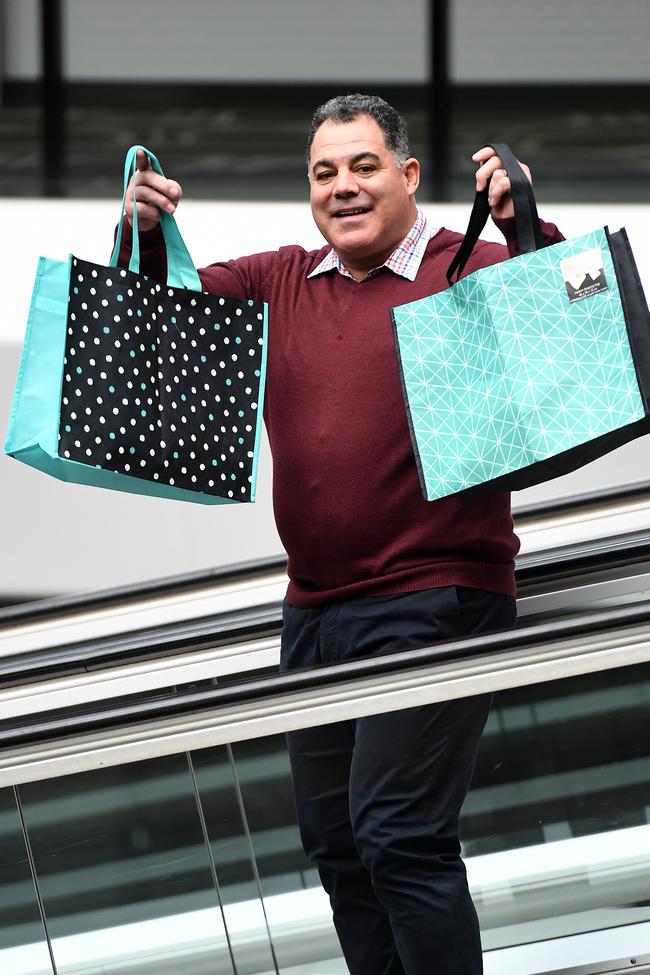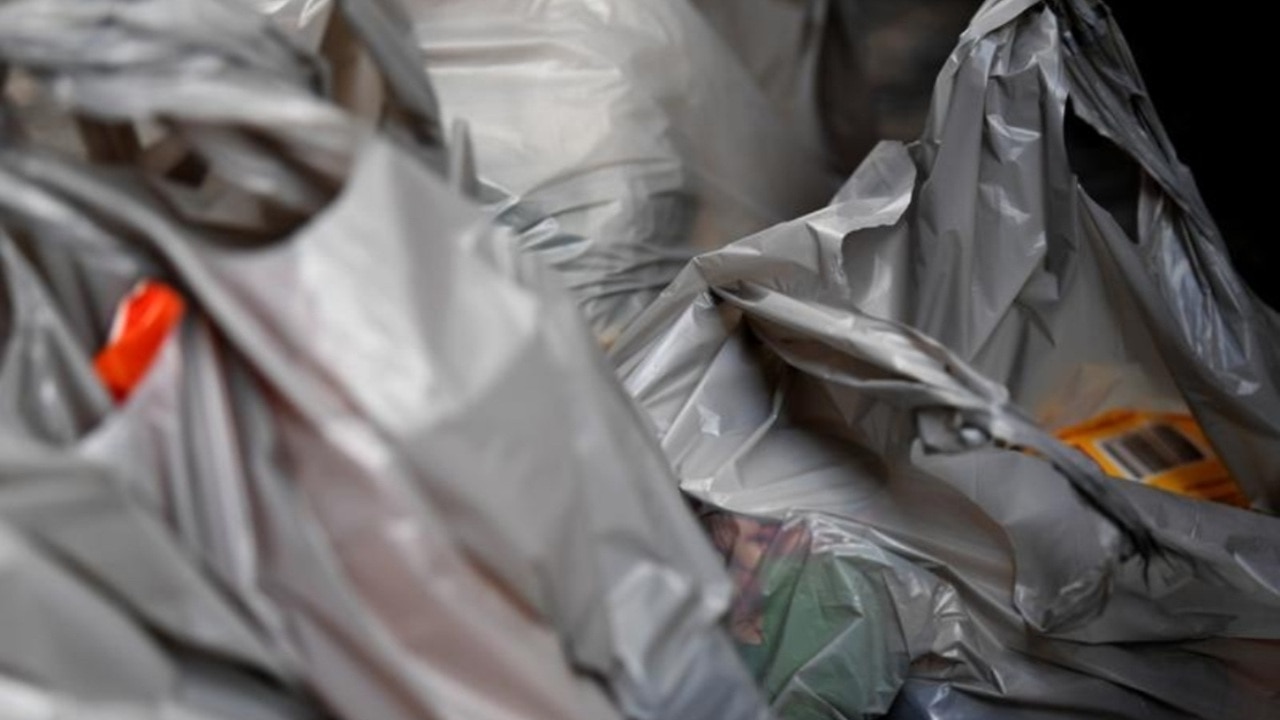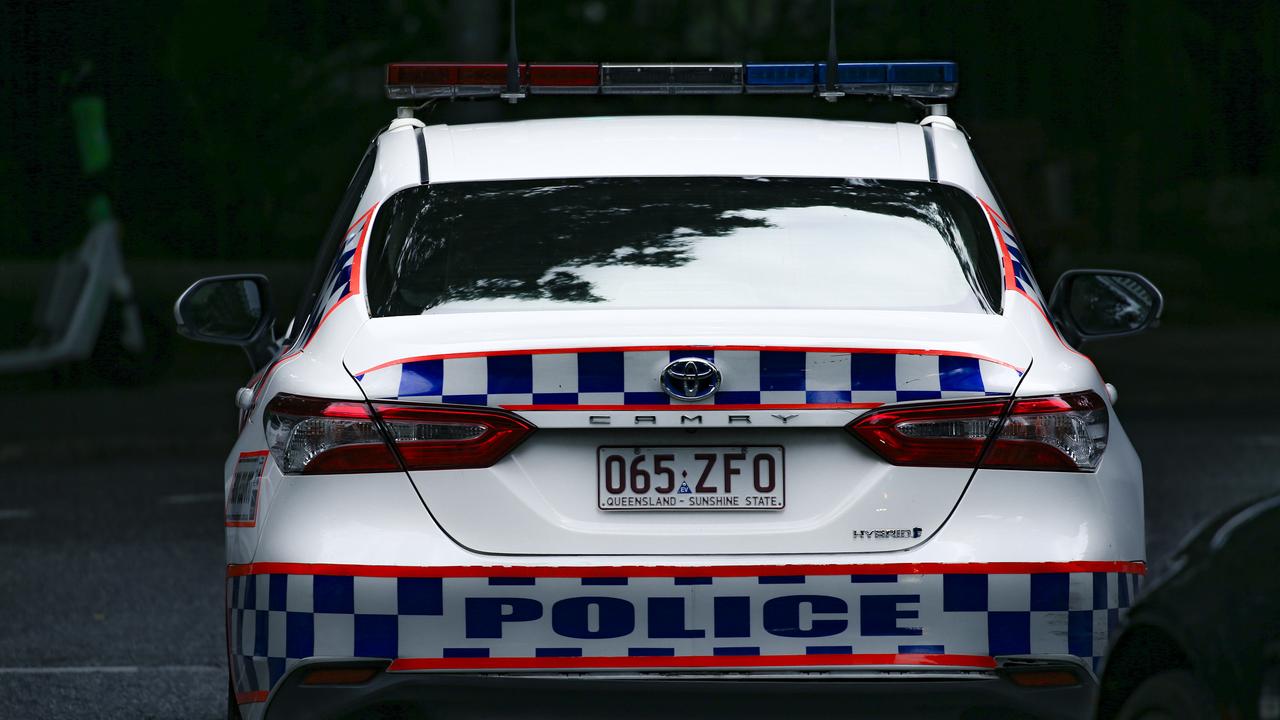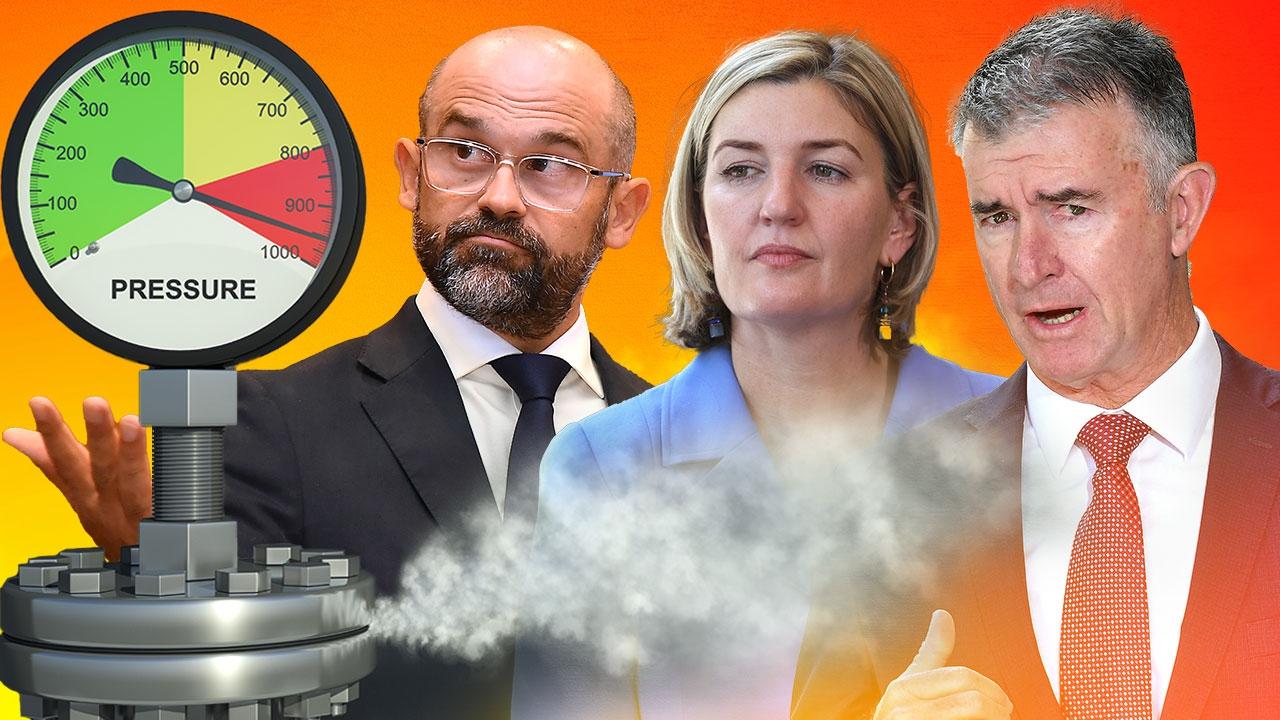What you need to know as plastic bag ban starts to take effect
QUEENSLAND shoppers may be caught off-guard this week as a ban on plastic bags in retail stores begins to take effect. We’ve got the answers to frequently asked questions.

QLD News
Don't miss out on the headlines from QLD News. Followed categories will be added to My News.
WEDNESDAY marks the dawn of a new environmentally friendly era in Queensland.
Woolworths will become the first major supermarket to ban free plastic bags from all stores, with rival supermarkets and other retailers to follow suit from July 1 – when new statewide laws come into effect.
The Queensland Government has revealed about one billion single-use lightweight plastic bags are used in the state per year, with about 16 million littering the environment.
The bag ban has left some shoppers confused on what the next step forward is, so here is a guide on what to expect this Wednesday.
Will I still be able to get plastic bags if I forget my own?
No – the free plastic bags of days gone by will become virtually extinct and no amount of pleading will get you one. But you will be able to buy reusable bags.
Okay, so how much will I be slugged for bags?
Shoppers can pay about 15¢ per reusable bag – they’re made from 80 per cent recycled material and sturdier than the old grey plastic bags. There’ll also be foldable bags, which will generally start at 99¢ each.
What if I order my shopping online for delivery?
Woolworth’s online shoppers will have their groceries delivered in a crate at $3.50 per delivery. The only alternative to lessen the fee is to have groceries delivered in reusable bags at an additional fee of $1 per delivery.
For Coles Click & Collect customers, groceries will be packed into Coles Better Bags at 15c per bag while home-delivery customers will have two options. Customers will chose between either having no bags, meaning groceries will be delivered in a crate and unpacked in your home, or paying 15¢ per Coles Better Bags for delivery.
Are any shops exempt from this?
No. The ban applies to all retailers across Queensland. The legislation defines a retailer as “a person who sells goods in trade or commerce”. All retailers – convenience stores, pharmacies, etc – will be banned from giving lightweight plastic bags, less than 35 microns thick with handles (singlet bags) to customers.
Members of the public can report retailers who are not complying with the ban to the National Retail Association Hotline on 1800 RETAIL.
Hefty fines are promised for retailers who do not comply with the ban after July 1, and they may be fined up to $6300 per offence.

How did this all come about?
The Queensland Government passed the Waste Reduction and Recycling Amendment Bill 2017, which will forbid retailers from giving away or selling single-use lightweight plastic bags. With millions of plastic shopping bags ending up in the environment in Queensland each year polluting marine life and killing wildlife, the Government decided to take action to ban the bag.
QLD BAG BAN reported Queenslanders on average use 200 single-use plastic bags every year, with less than 4 per cent being recycled. These bags end up in waterways and the marine environment affecting animals that can swallow or become entangled in them.
Will this make a difference to the environment?
Yes. Plastic bags break down creating micro plastics, which although small, can be hugely harmful to marine life. Marine biologist Kathy Townsend from the Moreton Bay Research Station UQ confirmed that approximately 30 per cent of turtles she has autopsied have plastics – including plastic bags – in their intestinal tract, while 6 per cent are killed from entanglement.
Do other countries do this?
Yes. Many countries around the world have either placed a ban on plastic bags or require retailers to charge a tax on them. Countries in Asia have placed bans, including China where all thin plastic bags are banned. Numerous countries in Asia have placed bans or taxes including Hong Kong, Indonesia, Malaysia and more. Africa also takes the matter seriously, with more than 15 countries on the continent either having them banned or charged a tax.
Which bags are banned?
- Single-use lightweight plastic shopping bags less than 35 microns in thickness
- HDPE (standard petrochemical) lightweight plastic bags
- Compostable, degradable and biodegradable plastic bags
And which ones aren’t?
- Barrier bags for unpacking perishable food (fruit, vegetables and fish).
- Bin liners and garbage bags
- Single-use heavy weight department store plastic bags
- Plastic nappy bags
- Dog poo bags
How else can I make a difference?
Recycle. Queensland’s recycling rate is one of the lowest in Australia.



